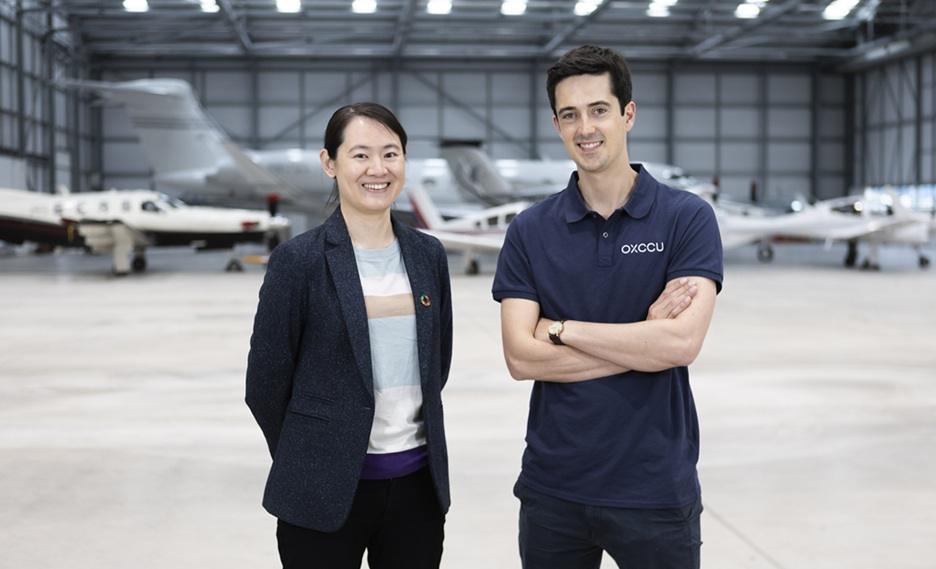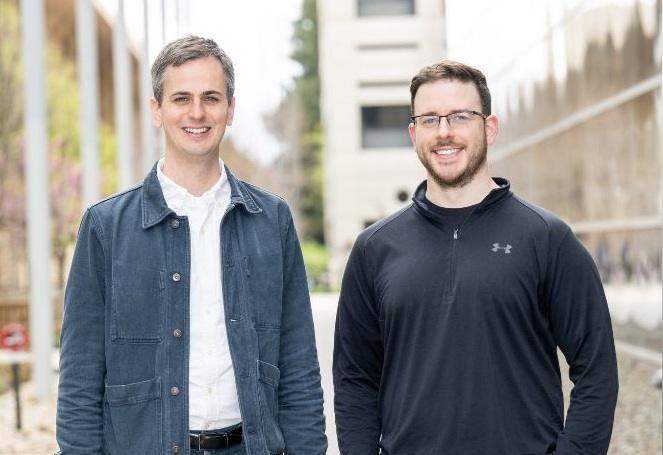OXCCU Raises $28 Million to Turn Waste Carbon into Low-Cost Sustainable Aviation Fuel
UK-based climate tech startup OXCCU announced today that it has raised £20.75 million (USD$28 million) in a new Series B funding round, with proceeds from the financing aimed at supporting the scaling and commercialization of its technology to convert waste CO2 and green hydrogen directly into affordable sustainable jet fuel.
Fuel accounts for the vast majority of the aviation sector’s emissions. Generally produced from sustainable resources, like waste oils and agricultural residues, sustainable aviation fuel (SAF) is seen as one of the key tools to help decarbonize the aviation industry in the near- to medium-term. SAF producers estimate the fuels can result in lifecycle GHG emissions reductions of as much as 85% relative to conventional fuels.
According to a recent report by the International Air Transport Association (IATA), however, while SAF production is anticipated to double in 2025, it will still account for just 0.7% of airlines’ total fuel consumption. Efforts to meaningfully increase the production of SAF face barriers including high initial costs and feedstock challenges.
Spun out from the University of Oxford’s Chemistry Department in 2021, OXCCU provides a solution to address the key challenges to effectively scaling SAF production, using CO2 and water as inputs, and a process to significantly lower cost compared to other SAF production methodologies.
OXCCU’s process combines biogenic carbon and hydrogen contained in waste biomass or biogas and CO from a variety of sustainable sources, with additional green hydrogen if required, and uses a one-step catalyst and reactor to convert the feedstocks directly into liquid hydrocarbons for fuels and chemicals, consolidating the traditional production process from a two-step Reverse Water Gas Shift (RWGS) and Fischer Tropsch (F-T) reaction into a single catalytic conversion.
According to OXCCU, by eliminating the need for reverse water gas shift or e-methanol steps, its process reduces capital and operating costs, and reduces the carbon intensity of the fuel. Additionally, the process has significant feedstock flexibility, with the ability to operate with a wide range of carbon dioxide, carbon monoxide and hydrogen input gas compositions, allowing for a range of feedstocks such as reformed biogas, gasified wood waste, and pure carbon dioxide with hydrogen.
Andrew Symes, CEO of OXCCU, said:
“In a market where capital is tight and investors are rightly selective, this raise is a testament to the strength of our science, the clarity of our mission, and the urgency of the problem we’re solving. What we’re seeing is that serious players with truly distinctive technologies are still getting funded.”
OXCCU opened its OX1 demonstration plant at London Oxford Airport in 2024, and its second demonstration plant, OX2, is expected to be fully operational in 2026. The company said that the new capital will enable it to accelerate its commercialisation efforts, expand its operations, and advance its next phase of technology scale-up.
The Series B round included new investors Orlen VC, Safran Corporate Ventures, International Airline Group’s (IAG) IAGi Ventures, Hostplus, and TCVC, alongside continued support from existing investors including Clean Energy Ventures, IP Group/Kiko Ventures, Aramco Ventures, Eni Next, Braavos Capital, and the University of Oxford.
Jonathon Counsell, Group Sustainability Director at IAG, said:
“We recognise the need for the world to achieve net zero emissions by 2050 and for the aviation sector to play its part and to develop sustainably. IAG has been a leader in the sector, being the first airline group globally to commit to net zero by 2050. We are further committed to our goal of meeting 10% of our fuel needs with SAF by 2030. Meeting these goals will be supported by this investment into OXCCU which is part of our strategy of developing new partnerships to produce next-generation fuels.”






